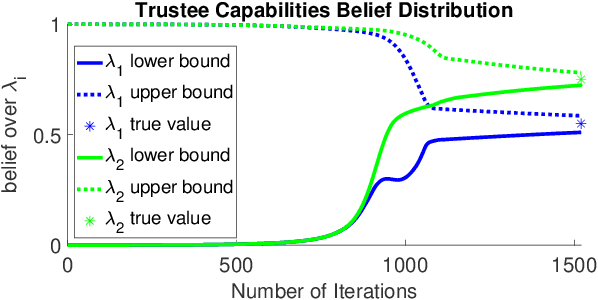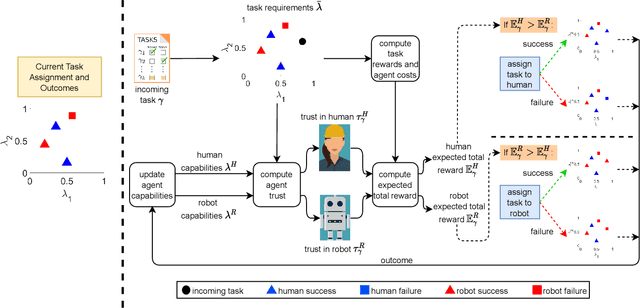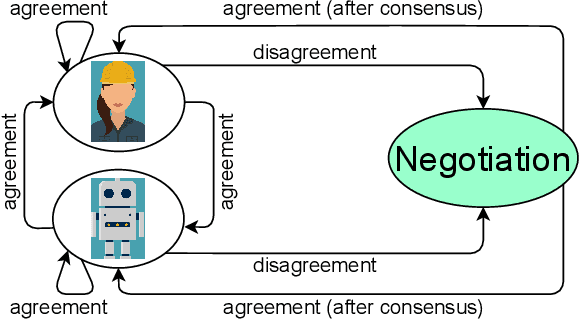Arsha Ali
Considerations for Task Allocation in Human-Robot Teams
Oct 06, 2022Abstract:In human-robot teams where agents collaborate together, there needs to be a clear allocation of tasks to agents. Task allocation can aid in achieving the presumed benefits of human-robot teams, such as improved team performance. Many task allocation methods have been proposed that include factors such as agent capability, availability, workload, fatigue, and task and domain-specific parameters. In this paper, selected work on task allocation is reviewed. In addition, some areas for continued and further consideration in task allocation are discussed. These areas include level of collaboration, novel tasks, unknown and dynamic agent capabilities, negotiation and fairness, and ethics. Where applicable, we also mention some of our work on task allocation. Through continued efforts and considerations in task allocation, human-robot teaming can be improved.
Using Trust for Heterogeneous Human-Robot Team Task Allocation
Oct 08, 2021


Abstract:Human-robot teams have the ability to perform better across various tasks than human-only and robot-only teams. However, such improvements cannot be realized without proper task allocation. Trust is an important factor in teaming relationships, and can be used in the task allocation strategy. Despite the importance, most existing task allocation strategies do not incorporate trust. This paper reviews select studies on trust and task allocation. We also summarize and discuss how a bi-directional trust model can be used for a task allocation strategy. The bi-directional trust model represents task requirements and agents by their capabilities, and can be used to predict trust for both existing and new tasks. Our task allocation approach uses predicted trust in the agent and expected total reward for task assignment. Finally, we present some directions for future work, including the incorporation of trust from the human and human capacity for task allocation, and a negotiation phase for resolving task disagreements.
 Add to Chrome
Add to Chrome Add to Firefox
Add to Firefox Add to Edge
Add to Edge